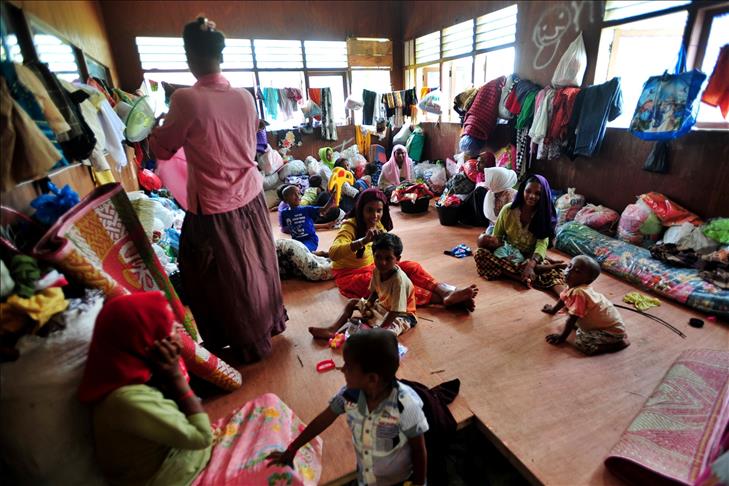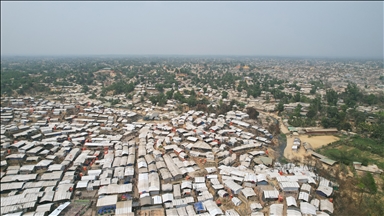
By Tuncay Kayaoglu
ISTANBUL
While the thoughts of the world remain on those suffering on crammed boats in Southeast Asia, for two Istanbul-based students the story is particularly close to home.
Both men have fled the repression and violence of Myanmar's Rakhine State, both have utilized the country's smuggling channels to cross the River Naf into Bangladesh, and both are thankful to Turkey for helping them acquire the passports which have enabled their escape.
Saeed Johar and Ahmed Burhan are Rohingya Muslims, determined -- like the many thousands of others who have fled Myanmar in fear of the violence that some human rights groups consider to be state-sponsored -- to one day return to the region and help those fleeing repression.
Johar, 24, told Anadolu Agency this week that he was just a child when his parents decided to leave the hardship of the western state of Rakhine.
The computer engineering student says that he and his six brothers and sisters crossed the River Naf that spans the Myanmar and Bangladesh border on a raft in the middle of a night illuminated by a full moon.
The crossing was pre-arranged, he says, the smugglers paying off Bangladeshi soldiers at checkpoints.
“'We did not see you entering into our country,'" he says they said. "Basically, they turned a blind eye.”
Burhan -- who fled his homeland 20 years ago -- says the smugglers demand $200 for each person to cross the border, paying the Bangladeshi guards to let them in.
But problems ensue if they bring too many people.
"Sometimes there is a heated exchange, or gunshots between the smuggler and a local police guard on the Bangladeshi side," the 28-year-old, who is doing a PHD in economics, told Anadolu Agency.
After two years at a refugee camp in the Bangladesh coastal district of Cox’s Bazar with thousands of other refugees from Rakhine, Johar says his family were able to mimic the locals’ way of life and learn Bengali.
“We moved to Chittagong [Bangladesh's second city],” he says, and from there to a nearby town, all the while concealing our Rohingya origins.
After around three more years trying to blend in with Bangladeshi society, the two men said they were finally granted passports and able to enter Turkey.
For this they will always be thankful.
"Turkish authorities and aid organizations showed great effort to convince Bangladeshi officials to provide them with passports," Burhan says.
Although neither men took the long crowded journey over the Andaman Sea into Thailand and beyond that many of those stuck at sea today have endured, they know friends and family who did.
The boat route is far riskier and much more expensive, Burhan says.
Each person pays around $1,200 to join the trip, he adds, and it can take at least 15 days to reach land "if the refugees are lucky."
"There is one captain. If he took the wrong direction, they would reach the open sea and end up in the depths of the Indian Ocean," he says, adding that "some had lost their lives."
Outside of the assistance that the two say they have been granted from Turkey, Burhan claims that Myanmar's neighbors are also sympathetic to Rohingya suffering.
He highlights the role of Malaysia, saying that if the boat people make it that far the government does not prevent Rohingya moving into cities, where their chances of finding a job increase.
Gradually the two men's thoughts return to home, with neither of them holding much hope for the future.
Both agree that the government has made it clear that it would be glad to see the back of its Muslims, although Burhan believes some salvation exists in the form of opposition leader Aung San Suu Kyi.
“If she would be elected, Myanmar would have democracy,” Burhan says.
Suu Kyi, however, is currently barred by the country's constitution from becoming president.
While the future for the boat people remains bleak, for those stuck in the no man's land between Myanmar and its neighbor hope may be at hand.
“Many people remain on the border between Bangladesh and Myanmar, and I am going to help them,” says Burhan, as Johar nods his head in agreement.
Anadolu Agency website contains only a portion of the news stories offered to subscribers in the AA News Broadcasting System (HAS), and in summarized form. Please contact us for subscription options.


